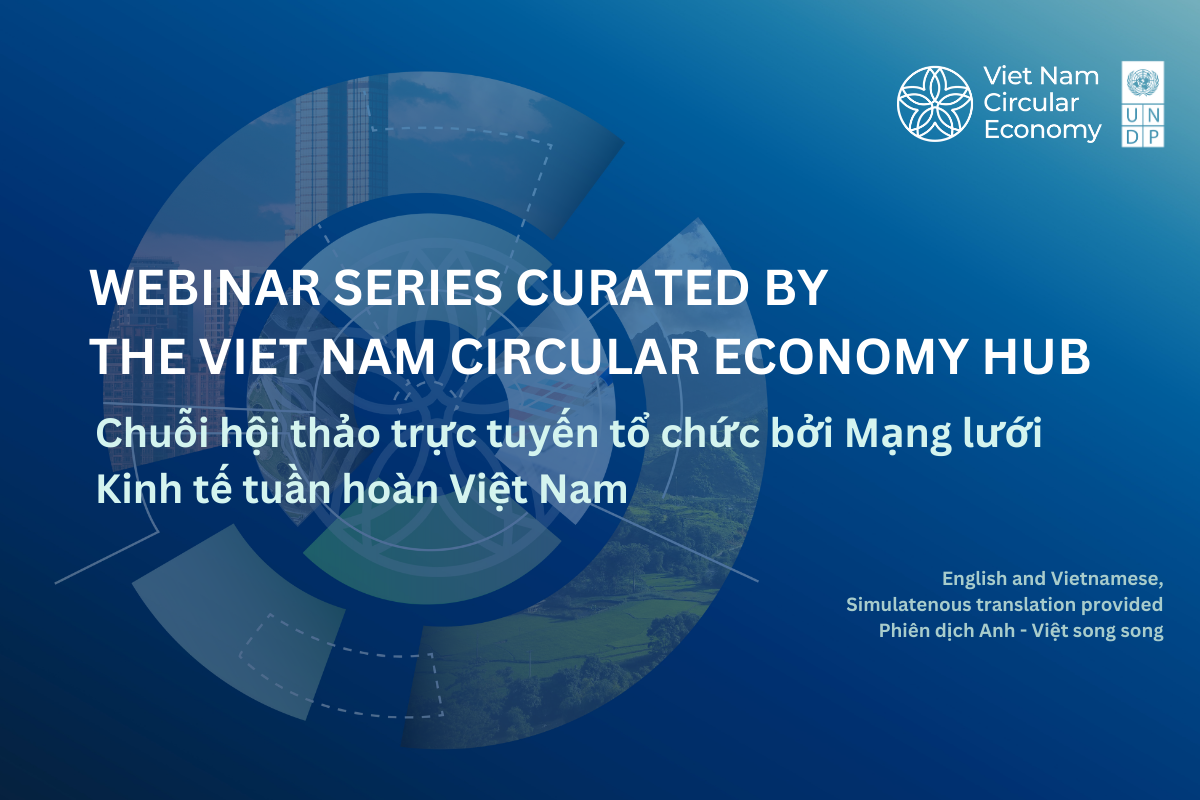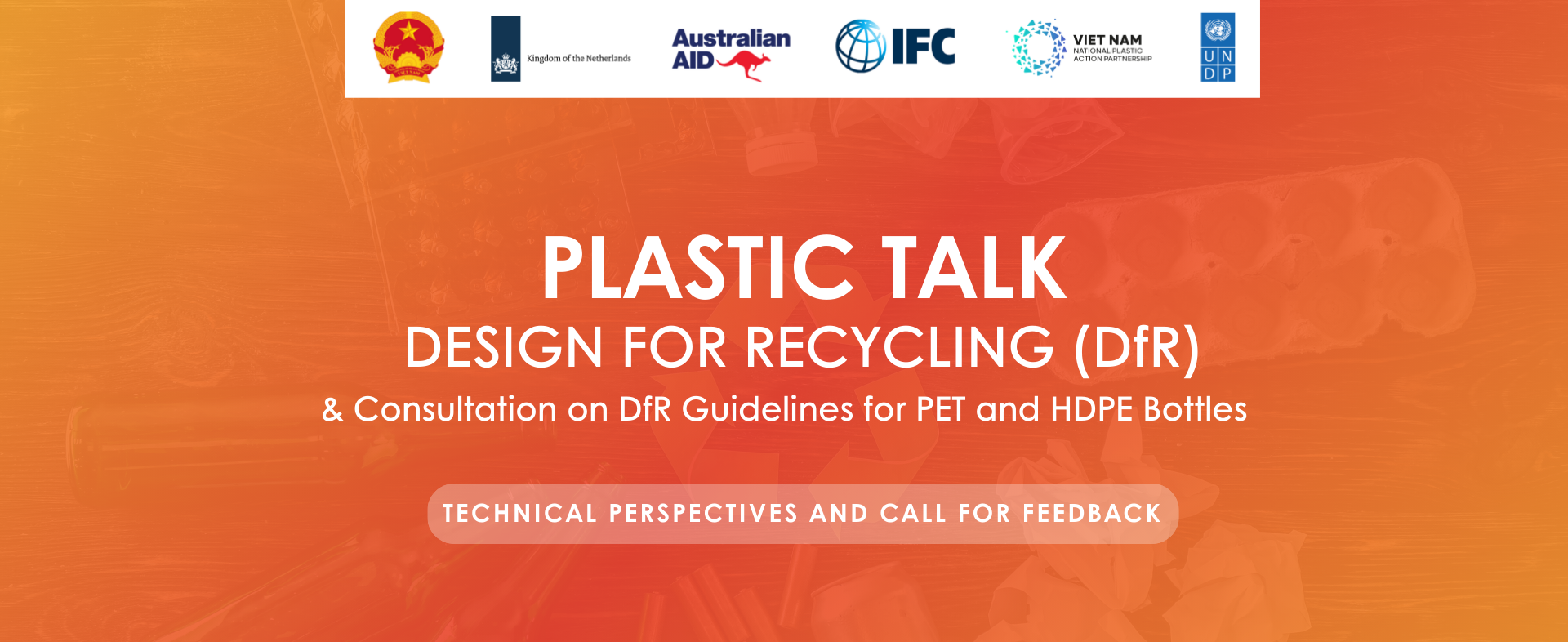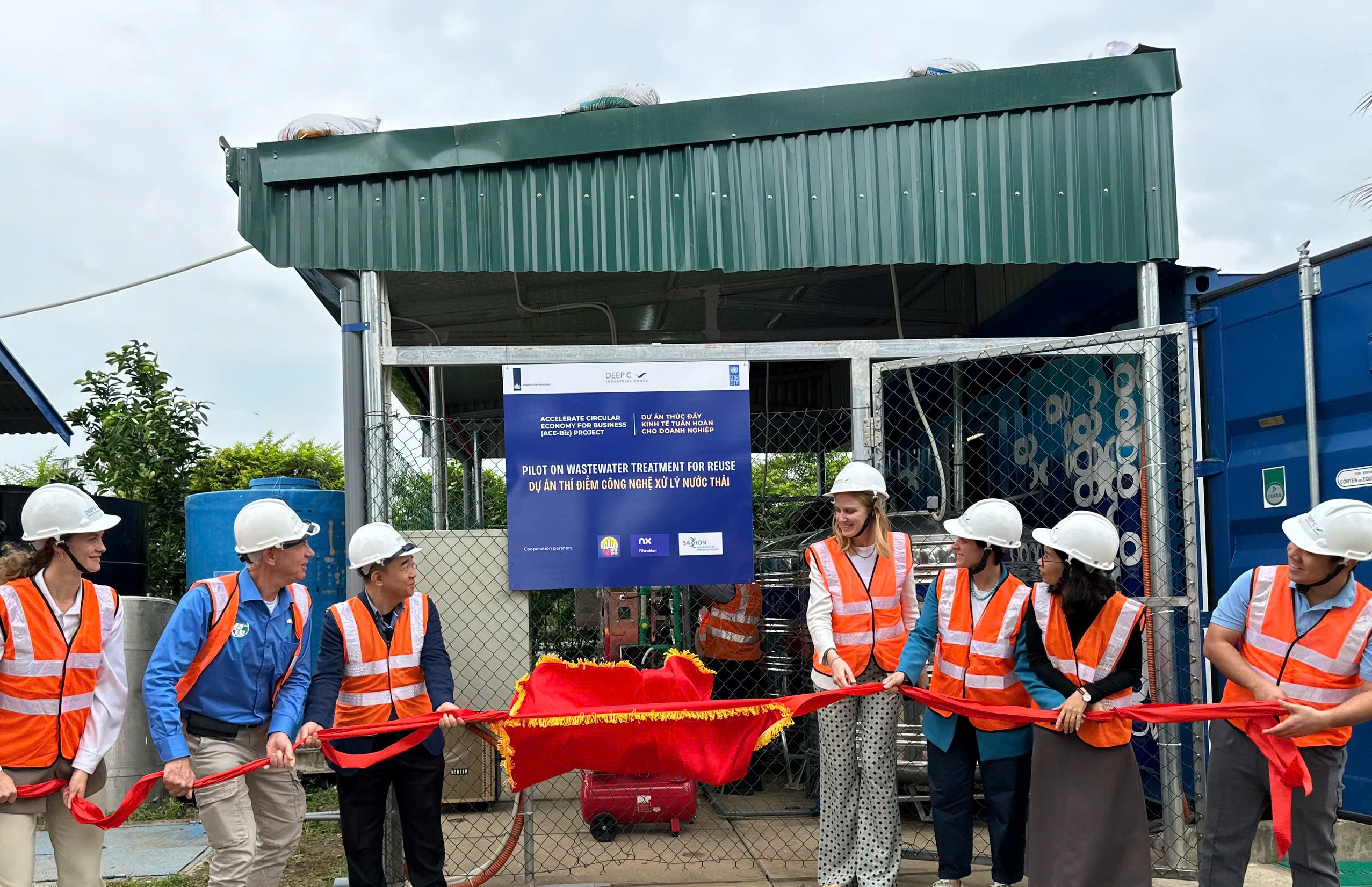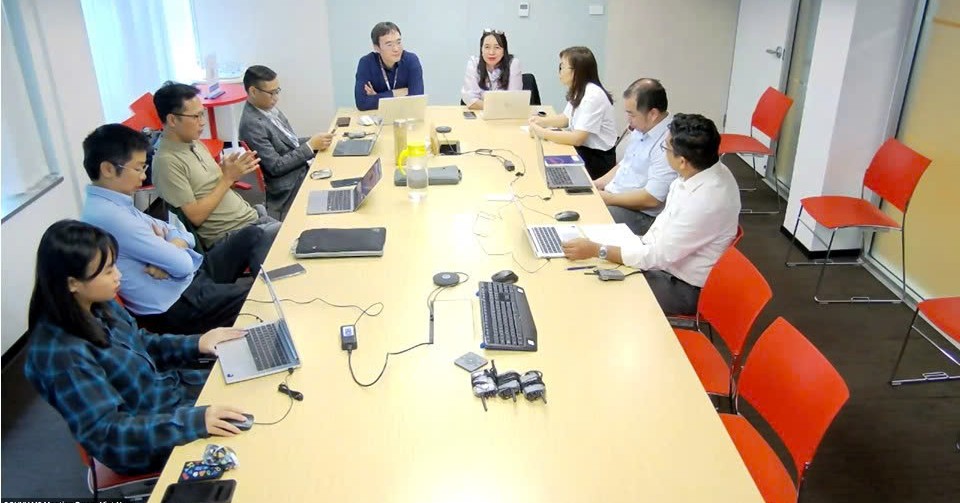
The webinar series, organised by the Viet Nam Circular Economy Hub – a public-private partnership initiative launched by UNDP Viet Nam and MONRE, aims to uncover different implications of a Circular Economy transition in Viet Nam. Specifically, the series seeks to:
- Generate knowledge and awareness about Circular Economy transition in Viet Nam and its implications for multiple different areas, sectors, and communities, including by bringing international best practices on Circular Economy to be applied in Viet Nam.
- Provide a space for policymakers, businesses, development practitioners and civil society to share and exchange their vision, knowledge and good practices and collectively frame what a Circular Economy transition would look like in Viet Nam.
- Facilitate connections, foster cross-sectoral partnerships, spur new initiatives, and encourage collective action.
We encourage you to watch and listen to our webinar series for deeper insights into circular economy regulations and the latest sector-specific technologies and trends in Viet Nam and across the globe.
WEBINAR CONTENTS
Unlocking value for waste in circular agriculture (Occurred)
In the face of a growing population, the surge in agricultural production aimed at ensuring national food security comes with a significant amount of solid waste and by-products, placing immense pressure on the ecosystem and the environment. According to a report in Viet Nam, in 2022, the country generated a substantial 156.8 million tons of by-products, most of which have been indiscriminately discharged into the environment.
While larger organizations and enterprises have actively explored and effectively implemented models for repurposing materials like rice husks, straw, bagasse, sawdust, and more, many SMEs still grapple with challenges. These challenges arise from a lack of know-how and skills in utilizing agricultural waste, establishing sustainable connections across the supply chain, and a dearth of access to appropriate technology.
Hence, the CE Hub has organized “Webinar 6: Unlocking value for waste in circular agriculture” to unveil successful circular business models. The objective is to heighten awareness and motivate businesses to tap into agricultural waste and by-products, adding value and contributing to a more sustainable and efficient agricultural sector.
Role of PROs in EPR implementation worldwide and Recommendations for Viet Nam (Occured)
You can find the summary note and resources of this session here.
Starting from 2024, the extended producer responsibility (EPR) policy will be implemented, holding producers responsible for the entire life cycle of their products. International experience has demonstrated that PROs play a pivotal role in enhancing the effectiveness of EPR implementation by substantially reducing the cost and logistical challenges associated with managing packaging waste.
The webinar will showcase operational models of PROs from countries in Asia and Europe that have accumulated significant expertise in EPR implementation. It aims to provide an overview of the preparations made by businesses to comply with upcoming recycling and waste treatment obligations while offering effective EPR implementation recommendations tailored to Viet Nam .
Sustainable packaging in the F&B industry (Occured)
You can find the summary note and resources of this session here.
Single-use plastic packaging poses significant threat to the environment. Around 36 percent of global plastic production is dedicated to packaging, including single-use plastic items used for food and beverage containers, approximately 85 per cent of which ends up in landfills or as unregulated waste.
To address this issues, some F&B companies have already taken proactive measure by implementing ambitious packaging strategies that embrace circular economy principles, such as incorporating recyclability, compostability, reusability and recycled content into the product and packaging design as well as manufacturing process.
The session aims to review diverse strategies employed by F&B companies to reduce the production of single-use packaging, explore how they align with some CE-related tools (eco-design, EPR) while highlighting the progress made towards achieving more sustainable packaging solutions.
Making circularity work in cities (Occured)
You can find the summary note and resources of this session here.
Faced with increasing air, land, water pollution challenges, high urbanization rates, and climate impacts, cities in Viet Nam and around the world quickly seize the opportunities that a strategic, fully-fledged, sector-wide CE transition could bring.
This session showcases examples and case studies from cities in Viet Nam and ASEAN that have embarked on the circular transition. It highlights the various approaches, methodologies, and viewpoints to do so; from grassroots experimentation, evidence-based scientific research, top-down climate goals, and citizen innovations.
Financing the circular economy transition in Viet Nam (Occured)
You can find the summary note and resources of this session here.
Achieving CE transition and Viet Nam’s climate targets – more than ever – requires rethinking and augmenting financial resources through transitional financing frameworks that pool both domestic and international funding sources, including climate and green financing, while optimizing the utilization of existing public finance.
This session aims to review different financial mechanisms that can be leveraged to support the Government of Viet Nam and SMES in adopting circular practices.
Measuring circular economy policies: Frameworks and metrics (Occured)
You can find the summary note and resources of this session here.
The Institute of Strategy, Policy on Natural Resources and Environment (ISPONRE) is currently formulating the National Action Plan on Circular Economy (NAP on CE), which will set out tasks and roadmaps covering specific fields and industries, investment projects, and prioritised solutions; the NAP on CE will be enacted in December 2023.
The aim of this session is to present and discuss the proposed indicators for the NAP on CE and learn from international experiences in setting up a robust M&E framework.
Exploring the linkages between circular economy and trade (Occured)
You can find the summary note and resources of this session here.
Viet Nam is one of the most open economies in the world and therefore a transition towards a more resource efficient and circular economy has broad interlinkages with international trade through cross border supply chains, end-of-life value chains, and the emergence of new dynamics in material and services trade.
International trade provides many opportunities to further environmental goals and CE on the other hand creates new opportunities for economic diversification, value-creation and competitiveness for Viet Nam. The webinar will provide different viewpoints on how trade can be harnessed to accelerate a Circular Economy transition in Viet Nam in a way that is inclusive and leaves no one behind.
















